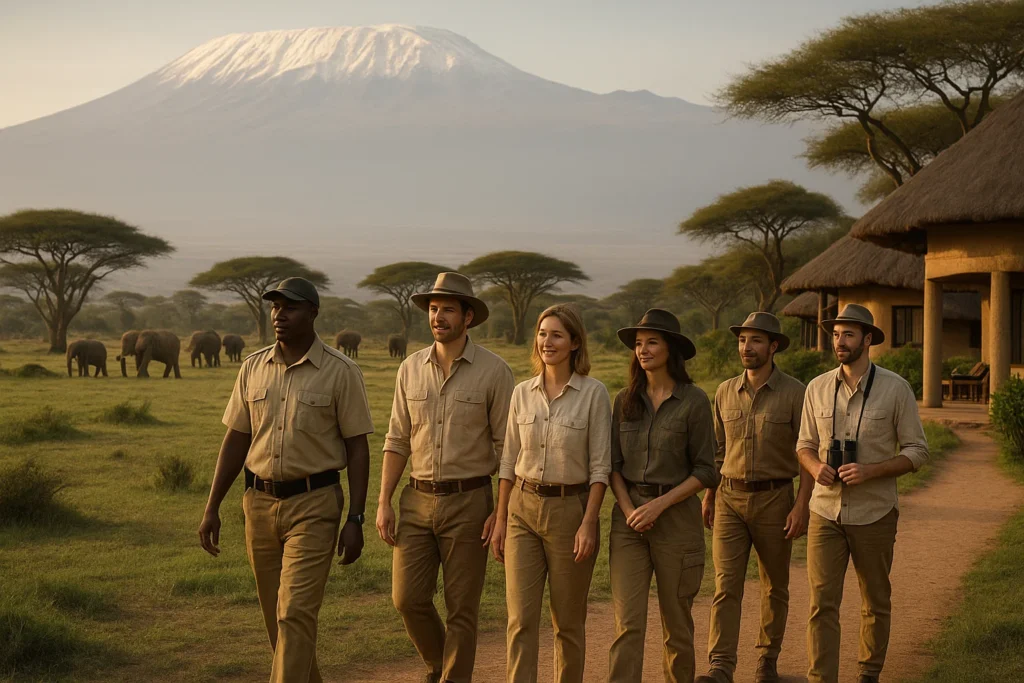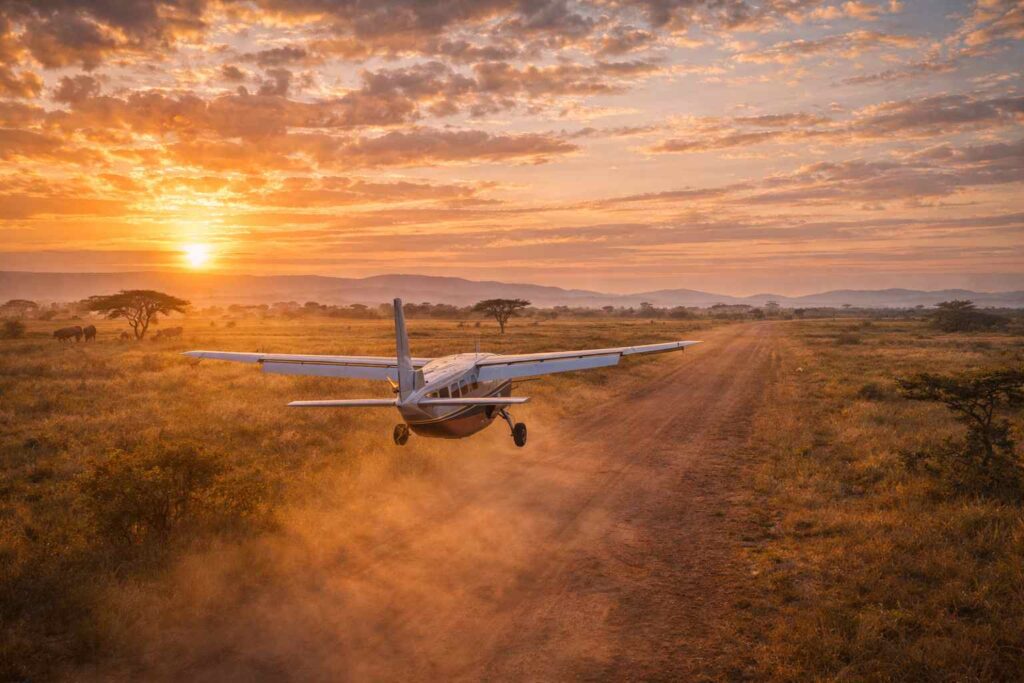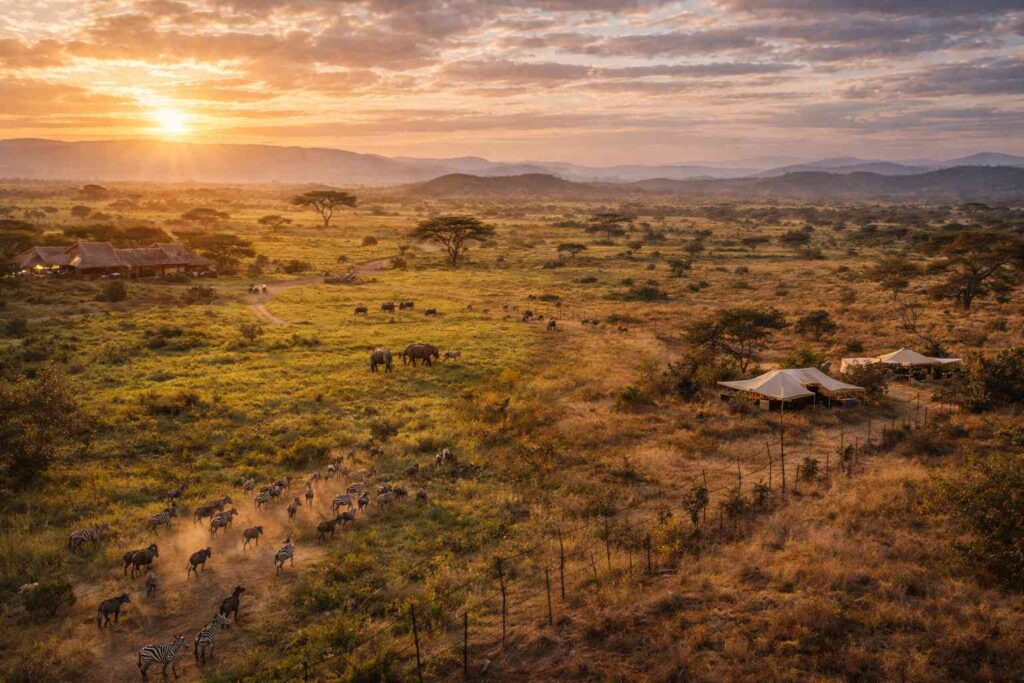Amboseli National Park is one of Kenya’s top safari destinations, known for its massive elephants and Kilimanjaro views. But for first-time visitors, questions about health and safety are common. The good news? Amboseli is generally very safe if you follow basic precautions. Here’s what to know before you go.
Health considerations for visiting Amboseli
Malaria prevention
- Amboseli is in a malaria-prone area, particularly during the rainy seasons.
- Take antimalarial medication as prescribed by your doctor.
- Use insect repellent with DEET, wear long sleeves in the evening, and sleep under mosquito nets (provided in most lodges).
Vaccinations
- Routine vaccines (tetanus, measles, etc.) should be up to date.
- Recommended: Hepatitis A, Typhoid; Yellow Fever if coming from a country where it’s endemic.
- Always consult a travel health clinic 4–8 weeks before your trip.
Food and water safety
- Drink bottled or filtered water.
- Stick to well-cooked foods and avoid raw vegetables if unsure.
- Most lodges adhere to international hygiene standards.
Sun and heat exposure
- Temperatures can soar midday. Wear sunscreen, a hat, and drink plenty of water.
- Carry oral rehydration salts if you’re sensitive to heat.
Wildlife and park safety
Game drive rules
- Always follow your guide’s instructions.
- Stay inside the vehicle unless in designated areas.
- Don’t approach or feed wildlife.
Walking safaris
- Only allowed outside the park in private conservancies.
- Must be guided by trained professionals, often accompanied by Maasai trackers.
Animal encounters
- Wildlife avoids humans when left undisturbed.
- Elephant sightings are common, but attacks are extremely rare when rules are followed.
Personal safety and security
Crime risk
- Amboseli itself is very safe. Most visitors experience no issues.
- In cities or nearby towns: avoid flashing valuables, use hotel safes, and avoid walking at night.
Travel and road safety
- Roads to Amboseli are generally safe, but the last stretch may be rough or muddy.
- A 4×4 vehicle is recommended.
- Avoid self-driving at night due to low visibility and wildlife crossings.
Emergencies
- Lodges are equipped with basic first aid kits.
- For serious cases, medical evacuation to Nairobi may be required.
- Travel insurance that covers medical emergencies and evacuation is essential.
What to pack for health and safety
- Antimalarial medication (consult your doctor)
- Insect repellent
- Sunscreen & hat
- Refillable water bottle
- First aid kit & personal medications
- Hand sanitizer & wipes
- Lightweight long-sleeved clothes (for sun and bugs)
Is Amboseli safe for families and solo travelers?
Yes. Amboseli is family-friendly and suitable for solo travelers as long as you book through reputable operators. Lodges cater to all types of travelers and prioritize safety. Guides are used to working with international guests.
Conclusion
Amboseli is a safe and unforgettable destination if you prepare wisely. Health risks like malaria are manageable with prevention, and wildlife dangers are minimal when guided by professionals. Follow basic travel safety tips, respect nature, and you’ll be rewarded with a smooth, enriching safari experience.
FAQs
Only if you’re arriving from or transiting through a Yellow Fever endemic country.
Not directly. Lodges have first aid; serious cases require evacuation to Nairobi.
It’s best to stick to bottled or purified water.
Always ask your lodge staff. Most camps escort guests after dark.
Yes, especially when using licensed operators and staying at reputable lodges.
Mainly health-related: malaria, dehydration, and sun exposure. Wildlife is safe if you follow the rules.






